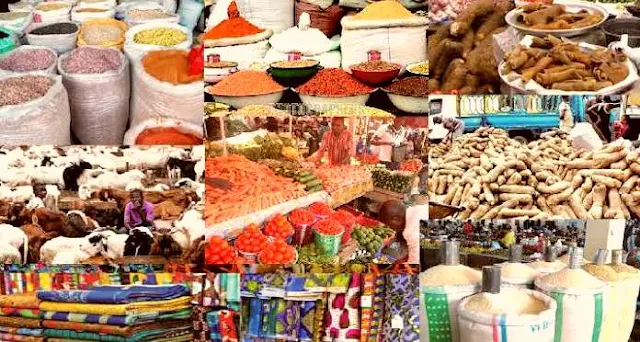In recent times, Nigeria has been grappling with a relentless surge in food prices, sending shockwaves through the nation and leaving its citizens struggling to cope with the economic fallout. This article delves into the multifaceted reasons behind the current food price hike in Nigeria, shedding light on the intricate web of factors contributing to this crisis.
Introduction:
The soaring food prices in Nigeria have become a cause for widespread concern, as citizens face the harsh reality of escalating living costs. This article aims to dissect the various components of this crisis, from the macroeconomic factors to the on-the-ground challenges faced by farmers and consumers.
Macro-Economic Factors:
At the macroeconomic level, Nigeria is grappling with issues that have a cascading effect on food prices. Fluctuating exchange rates, inflation, and government policies play pivotal roles in shaping the economic landscape. The devaluation of the Nigerian Naira on the international stage has led to increased costs for importing essential commodities, directly impacting the prices on local markets.
Moreover, inflation rates have been on the rise, eroding the purchasing power of consumers. As inflation creeps into the economy, the cost of production for farmers increases, prompting them to pass on the burden to consumers through higher prices.
Agricultural Challenges:
Nigeria's agricultural sector, which is crucial for sustaining the nation's food supply, faces an array of challenges. Climate change, erratic weather patterns, and inadequate infrastructure have led to decreased crop yields, affecting the availability of key food items. Unpredictable rainfall, prolonged droughts, and flooding have become recurring issues, disrupting the agricultural calendar and leaving farmers grappling with uncertain harvests.
Additionally, the lack of modern farming techniques and limited access to credit facilities hinder the productivity of small-scale farmers, exacerbating the overall strain on the food supply chain.
Supply Chain Disruptions:
The global COVID-19 pandemic has exposed the vulnerabilities in supply chains worldwide, and Nigeria is no exception. Disruptions in transportation, logistics, and distribution networks have made it challenging to move goods efficiently from farms to markets. This bottleneck in the supply chain has not only increased the cost of transporting goods but has also resulted in perishable items going to waste due to delays.
Government Policies and Intervention:
Government policies play a crucial role in shaping the economic landscape, and Nigeria is no stranger to policy shifts that impact the agricultural sector. Subsidies, trade policies, and support for farmers can significantly influence the dynamics of food prices. Examining the effectiveness of existing policies and proposing targeted interventions is vital for mitigating the impact of the current crisis.
Impact on Consumers:
The ripple effects of the food price hike are felt acutely by consumers across Nigeria. Households are forced to allocate a more substantial portion of their income to meet basic food needs, often compromising on other essential expenses such as education and healthcare. This increased financial strain exacerbates poverty levels and further widens the gap between the affluent and the economically disadvantaged.
Local Initiatives and Innovations:
Despite the challenges, there are pockets of resilience and innovation within Nigeria's agricultural landscape. Local initiatives aimed at promoting sustainable farming practices, empowering small-scale farmers, and enhancing the efficiency of the supply chain are gaining traction. These initiatives not only contribute to food security but also serve as potential models for broader, systemic change.
Conclusion:
As Nigeria grapples with the complexities of the current food price hike, a comprehensive and collaborative approach is essential. Addressing macroeconomic challenges, fortifying the agricultural sector, and implementing effective government policies are pivotal steps. The resilience and ingenuity of local communities, coupled with strategic interventions, can pave the way for a more sustainable and resilient food system in Nigeria.
In the face of adversity, Nigeria has an opportunity to transform its agricultural landscape, ensuring that the nation's food supply is not only secure but also accessible to all citizens. By unraveling the intricate web of factors contributing to the current crisis, stakeholders can work towards a more resilient and equitable future for Nigeria's food security.

